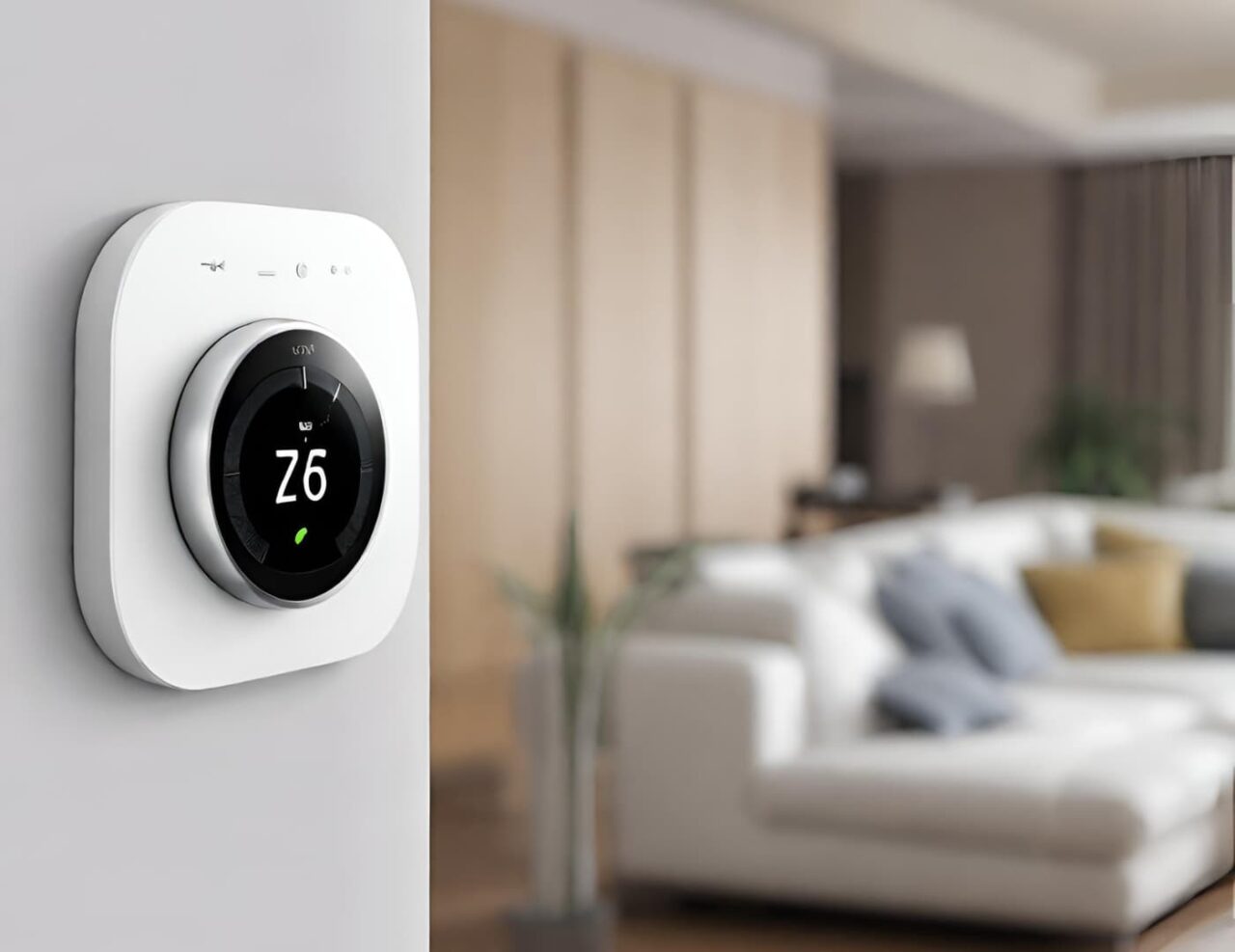Smart thermostats have taken the world by storm, revolutionizing the way we control our indoor environments. As concerns about climate change and energy conservation grow, the environmental implications of our daily choices become increasingly significant. In this article, we explore the environmental impact of using smart thermostats and how they contribute to a more sustainable future. Traditional pneumatic thermostats are being left behind as we embrace these cutting-edge devices for both their convenience and their positive effects on the planet.
The Evolution of Thermostats
The journey from pneumatic thermostats to smart thermostats represents a substantial leap in environmental consciousness. Older pneumatic thermostats relied on air pressure to control temperature, leading to inefficiencies and energy waste. In contrast, smart thermostats leverage advanced technology to provide precise control over heating and cooling systems. This transition signifies a significant step towards reducing the environmental impact of thermostat usage.
Energy Efficiency and Smart Thermostats
When it comes to energy efficiency, smart thermostats like Viconics thermostats are game-changers. Their advanced features go beyond what traditional pneumatic thermostats can offer. One key feature is remote control, which allows homeowners to adjust their thermostat settings from anywhere using a smartphone or computer. This means that if you forget to turn down the heat before leaving for work or vacation, you can easily do so remotely, preventing unnecessary energy consumption.
Another powerful aspect of smart thermostats is their adaptive learning capability. These devices can learn your heating and cooling patterns over time and make automatic adjustments to optimize energy usage. For instance, if you tend to lower the temperature at night or when you’re away, your smart thermostat will remember these preferences and apply them without any manual input. This feature not only maximizes comfort but also minimizes energy waste.
Reduced Energy Consumption
One of the most significant environmental benefits of using smart thermostats is the substantial reduction in energy consumption. Traditional pneumatic thermostats simply cannot match the precision and efficiency that smart thermostats offer.
Smart thermostats employ various strategies to minimize energy waste. For instance, they utilize occupancy sensors to detect whether a room is in use. If no motion is detected for a predetermined period, the thermostat can adjust the temperature to save energy. Similarly, these thermostats can adapt to your schedule and preferences, ensuring that your home is heated or cooled only when needed.
Additionally, smart thermostats excel in temperature regulation. They can maintain a more consistent indoor temperature by making minor adjustments throughout the day. This prevents temperature fluctuations that may prompt homeowners to manually increase or decrease the thermostat setting, which can lead to unnecessary energy consumption.
Impact on Carbon Footprint
The reduced energy consumption achieved through smart thermostats directly translates into a smaller carbon footprint. Less energy consumption means fewer greenhouse gas emissions, which are a major contributor to climate change. By using these eco-friendly devices, you are actively participating in mitigating the environmental impacts of excessive energy use.
Supporting Sustainable Practices
Smart thermostats align perfectly with sustainable living and eco-friendly initiatives. They enable you to participate in demand response programs, where utilities can lower energy consumption during peak times. Additionally, similar products are designed with energy efficiency in mind, supporting sustainable practices at every turn.
Smart Thermostats and Renewable Energy
The synergy between smart thermostats and renewable energy sources is undeniable. These thermostats can be programmed to make the most of clean energy by adjusting heating and cooling based on energy availability. For example, they can prioritize using solar energy during the day and wind energy at night. This intelligent use of renewable resources reduces reliance on fossil fuels and enhances the overall sustainability of your home.
Reducing HVAC System Waste
Traditional thermostats often lead to HVAC system waste. They may cycle the system frequently, leading to unnecessary wear and tear and higher energy consumption. Smart thermostats optimize HVAC operation by ensuring it runs only when necessary. This not only extends the lifespan of your HVAC system but also reduces the environmental impact associated with its maintenance and eventual disposal.
Consumer Benefits and Environmental Impact
The use of smart thermostats offers a win-win scenario. Consumers benefit from lower energy bills, increased comfort, and the convenience of remote control. Simultaneously, these devices help reduce the strain on the environment by minimizing energy waste and carbon emissions. It’s a long-term investment that not only saves you money but also contributes to a cleaner, more sustainable planet.
Addressing Environmental Concerns
While smart thermostats offer tremendous environmental benefits, it’s essential to acknowledge potential concerns related to their manufacturing and disposal. Some may worry about electronic waste and the environmental impact of producing these devices. However, manufacturers are actively working to address these concerns by implementing recycling programs, reducing packaging waste, and developing more energy-efficient models.
Encouraging Sustainable Choices
In closing, embracing smart thermostats is a proactive step towards a more sustainable future. As consumers, we have the power to make environmentally conscious choices when it comes to our daily activities and the devices we use. By selecting eco-friendly smart thermostats and using them responsibly, we contribute to a greener planet and demonstrate our commitment to environmental stewardship.
Conclusion
Smart thermostats have emerged as eco-friendly solutions for modern homes, leaving pneumatic thermostats in the past. These devices offer a range of features that not only enhance our comfort but also significantly reduce our environmental impact. By using smart thermostats like Viconics thermostats, we actively participate in energy conservation, carbon footprint reduction, and sustainable living. Making the switch to these innovative devices is a small yet impactful step towards a greener and more sustainable future for all.
